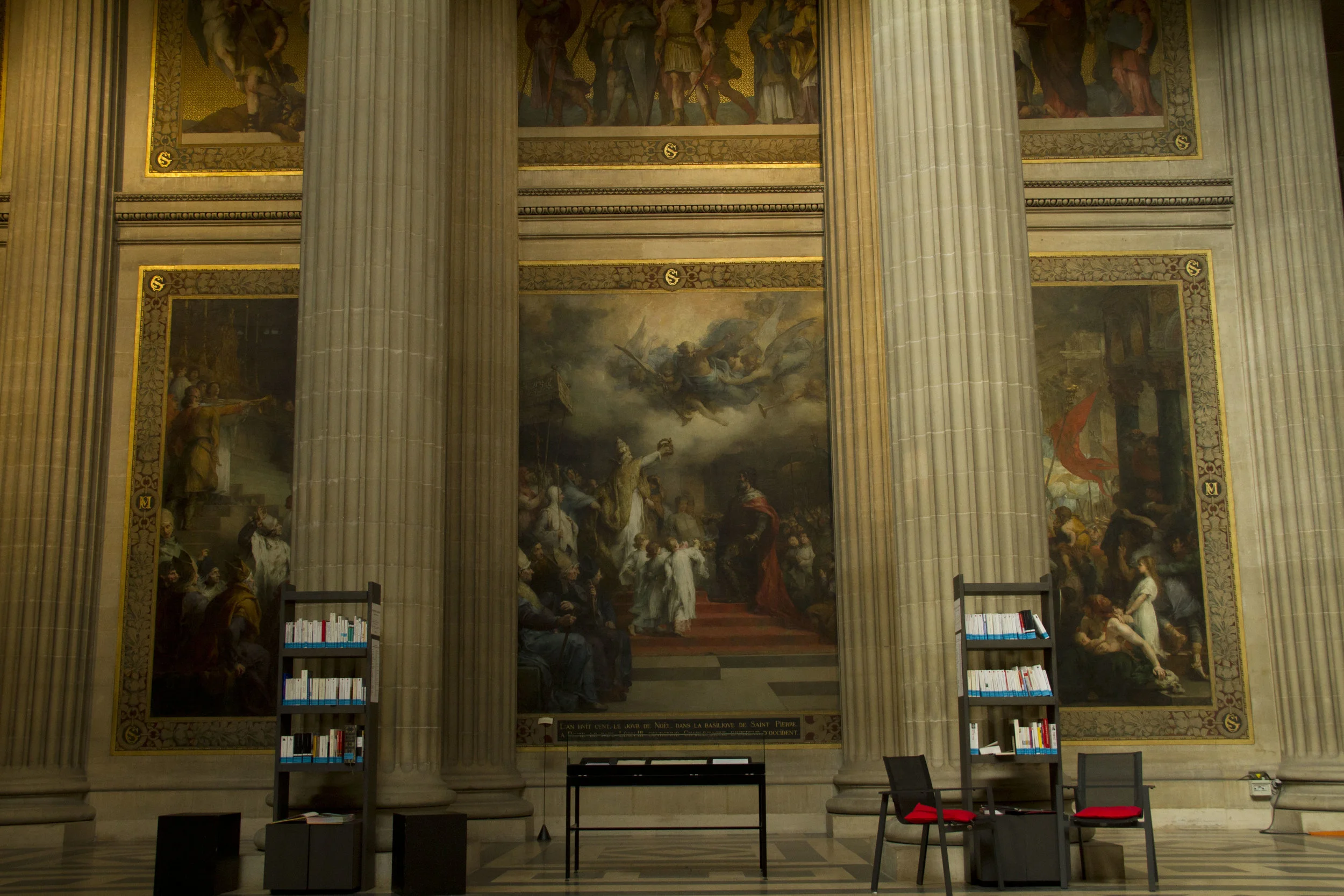Paris: Visiting Père Lachaise Cemetery
Cemeteries are an interesting place. Even as humans attempt to immortalize themselves in metal and stone, time grinds forward to erase existence, wiping chiseled letters away and even metal eventually finds its way back to the Earth.
UPDATED: 2/4/2023
Note: Some links throughout our site are affiliate links, which means we may receive a small commission at no cost to you.
you may enjoy Père Lachaise Cemetery if…
…you are fascinated by cemeteries like I am, you are curious to check out interesting tombstones and mausoleums, you want to see the final resting spots of some famous and important historic figures, and you like an escape from the hustle and bustle of Paris to a garden-like spot.
Interesting facts about Père Lachaise Cemetery
The cemetery is 110 acres and is one of - if not the most - visited cemeteries in the world.
The cemetery was founded in 1804 and named after François de la Chaise, a Jesuit priest (hence “Père”) who had been the private confessor to King Louis XIV in the late 1600s.
The cemetery is still in use today, though it is very crowded, and there are specific requirements that must be met to be buried there. For those looking for a more affordable option who still meet the stringent requirements, their cremains can be added to a lawn in the cemetery. Atlas Obscura wrote an article on this interesting story that you can read here.
Near Jim Morrison’s gravesite is a “gum tree” where visitors literally stick their gum to a tree in remembrance.
Oscar Wilde’s tomb has been so disturbed by visitors that a plexiglass shield was placed around it, and it is covered with lipstick kisses.
In the middle of the cemetery is a columbarium that houses even more remains. The columbarium is a stark white, marble echo-y room with flowers and pictures placed at some of the spots. It would be easy to overlook this spot if you didn’t know to look for it.
Oscar Wilde’s grave needed a barrier to prevent both intentional and unintentional vandalism.
One of the most lively graves, Morrison had a mass of devotees paying their respects through flowers, rum, and of course, music.
what we loved about Père Lachaise Cemetery
Cobblestone streets look beautiful but walking on them can be painful. Watch your step!
The cemetery was a relaxing place to walk with weaving avenues of cobblestone streets and side alleyways. There are trees and other plant-life throughout, and it’s evident that some of the tree roots are creating upheaval for the inflexible tombs. One of our favorite parts was simply exploring the various tomb designs - some very plain or modern looking, others ornate with iron gates and stained glass windows. For some reason, that type of tomb always reminds me of the one in Romeo and Juliet where Juliet awakens to find Romeo dead next to her in her family’s tomb before killing herself.
know before you go to Père Lachaise Cemetery
A map is absolutely essential if you want to find any of the particularly famous graves in the cemetery; even then, some sections are a little tricky. They were out of maps near the front gate when we went, but I was able to find an online version here that we found very useful.
The cemetery has rough and uneven cobblestone avenues, so I recommend wearing sturdy shoes. It also weaves its way up and down a hillside with various stairways placed throughout side avenues if you want to take a route off the main roads to less accessible places.
which graves to visit at Père Lachaise Cemetery
In addition to the map I linked above, there are boundless websites with lists of whose graves to visit. Honestly, it all depends on what is important to you. As an avid reader, some of my top picks were, naturally, authors: Oscar Wilde (I loved The Picture of Dorian Gray), Gertrude Stein, and Marcel Proust (working my way through In Search of Lost Time and am almost halfway through volume III). We also saw Balzacs’ grave, though I have to admit I have yet to read any of his novels.
Some well-known painters that I have studied are also there: Seuret, Pissaro. Then there are the musicians from Chopin to Piaf (we couldn’t find her grave based on the map), Bizet (composer of the opera Carmen, which we’ve seen at our local opera), and one of the most-visited graves: Jim Morrison.
Morrison’s tomb is actually off the beaten path, but we found it by following the sound of voices and discovered a small crowd and a visitor playing “Light my Fire” on his phone near the “gumtree” where visitors stick their gum when they visit.
I have mixed feelings about the desecration caused by visitors to Morrison’s grave, who have been rowdy for decades, even going so far as to draw arrows on others’ graves to point the way. Besides Morrison’s, the other grave that seemed to have the most impact from the public was Oscar Wilde’s, whose family has put a barrier around his tombstone to separate the public from the Sphinx-like sculpture, which has been missing an *ahem* important body part since it was broken off in the 1960s in an act of vandalism. The glass around it is covered with lipstick from kisses, and various mementos thrown over the barricade are strewn around its base. On one hand, I do think most of this behavior is by people trying to honor someone who made an impact on their lives but on the other, it is incredibly disrespectful to their families and to their cemetery neighbors.
New spring life contrasts nicely with monuments for the deceased.
Many of the mausoleums had wonderful stained glass windows.
Marcel Proust’s grave was slightly hidden but Lindsey managed to find it.
For the living, Pere Lachaise is a wonderful place to remember the departed.
Nature, human activity, and time have added striking dark accents to an already beautiful carving.
This mausoleum appears to be newer than many of its neighbors.
It was a wonderful day for a walk through Pere Lachaise Cemetary.
A window to lost souls?
A metaphorical doorway leads us onward to the next life?
This little turtle helped support a huge pyramid shaped stone block.
This is only a small slice of Pere Lachaise Cemetery.
Click the image below to save this post to Pinterest!
Check out our other posts about France:
Check out the rest of our Parisian adventures!














